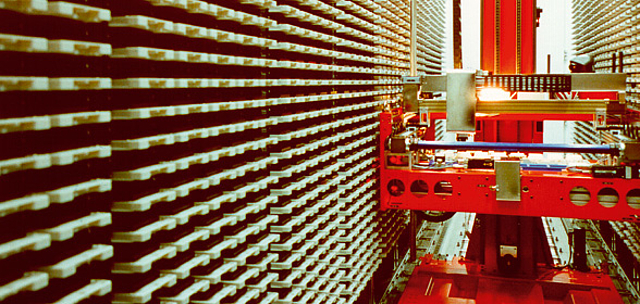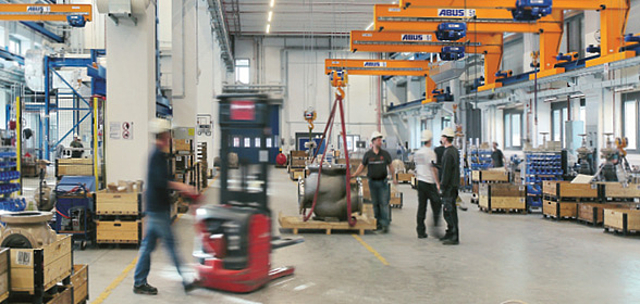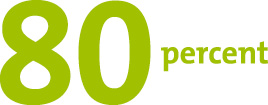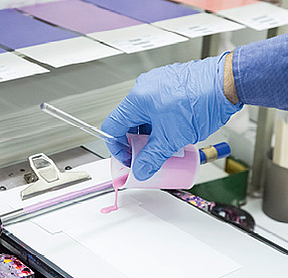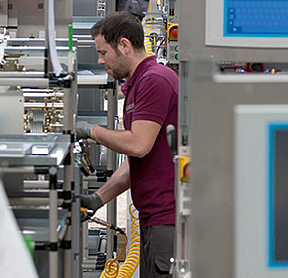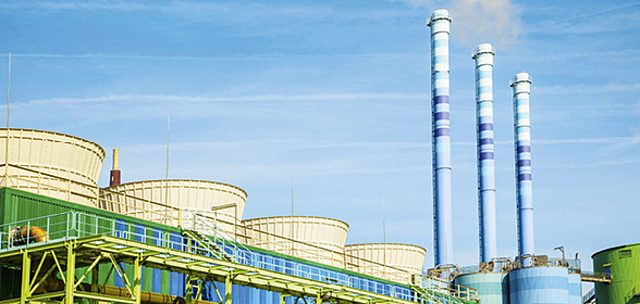Project Profile
Project Title: „Masterplan Industrie for Frankfurt am Main“
Subject Cluster: Economy and Consumption
Project Objectives: Developing a long-term strategy with industrial policy objectives, guidelines and measures to strengthen Frankfurt’s industrial sector. Consolidating Frankfurt‘s image as an industrial location, improving the acceptance and level of esteem of industry among local politicians and the urban society. Creating local parameters to promote the innovational strength and competitiveness of Frankfurt‘s industrial sector.
Project Start: January 2012
Project Participants: Advisory Board Industrie; Department of Economy, Sport, Safety and Fire Services Frankfurt; over 70 specialists in eight working groups; Frankfurt Economic Development GmbH
Given the expanding networking of companies, digitalisation, the global expansion of supply chains and sales markets, local authorities would at first sight appear to have very limited room to manoeuvre. The development of the “Masterplan Industrie“ shows that municipal industrial policy still has plenty of scope to assist local industrial companies.
Although Frankfurt is often seen primarily as a financial centre, the city can look back on a long industrial tradition. Frankfurt’s industrial sector is an important employer in the Rhein-Main Region and a significant trade tax payer. A comparison with other large German cities also shows that Frankfurt is extremely productive. The value added per person employed is higher than in almost every other city. And, to a great extent, it is the diversity of the economic structure with its broad-based industry which helped Frankfurt master the global financial crisis better than many other cities.
Developing a strategic framework for urban industrial policy
The “Masterplan Industrie“ aims to strengthen Frankfurt as an industrial location and promote the innovative capacity and competitiveness of its industrial sector on a long-term basis. The Masterplan takes up from the industrial policy concept of 1994 and outlines objectives, guidelines and suggested strategies for the city’s industrial policy.
The process leading to the “Masterplan Industrie“ was inaugurated in 2012 under the aegis of the Frankfurt Economic Development and is accompanied by the Advisory Board “Industrie”. The Board, chaired by the Director of Economic Affairs, is composed of representatives of industrial companies in Frankfurt, the Chamber of Commerce, the Chamber of Trade, the Federation of Hessian Employers’ Associations, the Confederation of German Trade Unions and industrial trade unions, town planning, the FrankfurtRheinMain Regional Association, the Goethe University, Provadis University and the Business Development Agency Frankfurt.
The establishment of the Advisory Board Industrie, the industrial study and survey of over 100 trade and industrial companies and the creation of working groups in eight fields of activity relating to industrial policy meant that a broad circle of stakeholders became involved in this process.
Stability through diversity
An initial inventory showed that the number of industrial companies, commercial businesses and their employees has stabilised in Frankfurt in the last few years. Of the 100 biggest enterprises in Frankfurt the industrial sector currently makes up about 45 percent of the business tax prepayments.
Frankfurt’s industrial sector is characterised by a broad structural diversity. While over 80 percent of the enterprises have fewer than 10 employees, 10 percent of the companies employ more than 100 people. These companies constitute three quarters of the working population. One stabilising factor in Frankfurt’s economy is the broad spectrum of industries which focus on the chemical and pharmaceutical, automotive, mechanical engineering, electrical and electronics and food sectors.

of the enterprises have over 100 employees, these companies account for three quarters of the working population.

are employed in the manufacturing industry in Frankfurt, seven percent of all socially insured employees.
Locational satisfaction and need for action determined empirically
The industrial study illustrated clearly that, in their diversity, enterprises in Frankfurt place very different demands on the location. In the study the Goethe University asked over 100 producing artisanal and industrial companies about locational satisfaction and examined value creation chains and industrial networks. In a strengths/weaknesses analysis industrial companies in Frankfurt rated the location as more than satisfactory. Favourable assessments were given on the excellent logistics infrastructure – including Frankfurt harbour, the airport and motorway accessibility, the very good range of business-related services, its reputation as a booming economic metropolis, its training opportunities, the supply of university graduates and the inter-company networking.
The companies saw need for action mainly with regard to the trade tax, their level of esteem among local politicians, the length of approval procedures, the availability of skilled workers and the housing market.
While the companies viewed the qualitative amenities and logistical infrastructure of the industrial areas as mostly positive, high location costs, the shortage of commercial land, planning uncertainty and, in some cases, conflicts of interest are investment barriers.
The study also revealed that, besides the issues of industrial and commercial areas, there were other important fields of activity for a municipal industrial policy such as infrastructure, communication, employment, city administration or science and research.
Targets and action plan for eight fields of activity
Eight working groups were created for these fields of activity:
- Spatial-functional development concept
- Digital infrastructure
- Energy
- Logistics
- Attraction of the industrial sector: communication & positioning
- Work and qualification
- Administrative processes & municipal service
- Innovation, employment & future added value
Over 70 specialists developed industrial policy goals, general principles and concrete project proposals. The working groups presented their findings in workshop reports.

The gross value added in the manufacturing sector in Frankfurt is per employed person. Productivity is far above the national average of 73,000 euros per employed person.
Guidelines for commercial space development
The study on the spatial-functional business development concept (RfEK) examined the demand for commercial areas and the potential of existing commercial areas until 2030. A land securement concept showed which areas were to be secured long-term for commercial purposes.
Given the high proportion of key technology and exportintensive industries, the study sees strong growth potential for the industrial sector, anticipating an expansion of industrial production of about 30 percent and a demand for additional areas of between 90 and 140 hectares from companies which rely on commercial areas. Another 80 hectares are needed for use as offices or by the retail trade, branches not necessarily dependent on commercial areas.
There are, statistically, sufficient commercial areas to meet the expected demand – mainly in the industrial parks, but also on unused or rarely-used land. However, not every commercial site is available at short notice or is suited to its intended use. The vital factor will be to remove obstacles to development and make the areas available according to need, while affording priority to those sectors actually dependent on these areas.
Another challenge is securing areas for local businesses. Smaller artisanal businesses and location-bound service providers in particular, are in danger of being squeezed out, as other uses, such as housing construction, are competing for the areas. The concept lists twelve guidelines as an orientation aid and suggests courses of action for commercial space development (see box).
Twelve guidelines for commercial space development
- Develop Frankfurt as an industrial location
- Guarantee a needs-based supply of commercial areas
- Exploit the development potential within the city
- Give priority to businesses dependent on commercial areas
- Use the potential of the industrial parks
- Overcome limitations to site availability
- Prevent adverse environmental impacts
- Ensure infrastructural requirements
- Bolster strengths, develop qualities and profiles
- Cultivate regional cooperation
- Create transparency through communication and information
- Offer perspectives for local businesses
The Masterplan as industrial policy
The Masterplan Industrie has proved itself an effective measure. Its development and the ensuing process have intensified the dialogue between industry and the city administration while the public debate on the Masterplan Industrie has raised awareness that Frankfurt is also an industrial city.
The Frankfurt City Magistrate agreed on the Masterplan Industrie on 6th November 2015, as did the City Council on 28th January 2016. It will also be incorporated into the Integrated Urban Development Concept (IStEk) which is currently in preparation.

Strategy
Analysing the strengths and weaknesses of the location from industry's point of view; developing industrial policy goals, general principles and concrete project proposals for industrial promotion; involving a wide range of stakeholders.

Communication
Intensifying the dialogue between industry and the city administration; raising political and social awareness that Frankfurt is an industrial city; moderating conflicts; fostering acceptance.
Frankfurt Economic Development GmbH
Dr. Bernd Rentmeister
Tel +49 (0)69 212-40979
bernd.rentmeister(at)frankfurt-business.net


